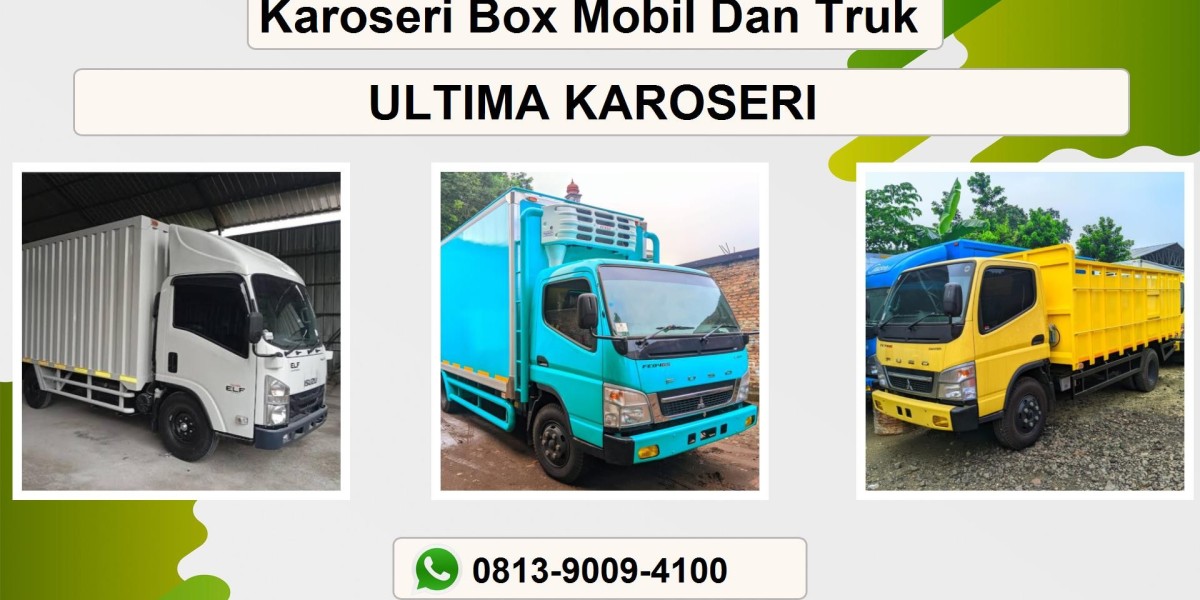
Who Needs A License?
Any company with a physical existence in South Dakota is needed to be licensed for sales tax collection. Gross sales or deals consist of the sale of concrete individual residential or commercial property, any products transferred digitally, or services. The minimum limits listed below do not use to organizations with a physical existence in South Dakota. South Dakota law likewise needs any company without a physical presence in South Dakota to obtain a South Dakota sales tax license and pay relevant sales tax if business satisfies the following criteria in the previous or existing calendar year:
How To Get A License

- Register for a South Dakota sales tax license utilizing the online Tax License Application.
- Register with numerous states through the Streamlined system at streamlinedsalestax.org.
Remote Sellers and Marketplace Providers
Remote Sellers
Remote sellers who meet specific thresholds need to obtain a South Dakota sales tax license and pay appropriate sales tax. (Per SDCL 10-64) *
A remote seller is a company without a physical existence in South Dakota that fulfills the following requirements in the previous or present fiscal year:
- Your service's gross revenue from sales into South Dakota surpassed $100,000
* Gross sales or transactions consist of the sale of concrete personal residential or commercial property, any items moved digitally, or services.
Marketplace Providers
Marketplace suppliers who meet a specific threshold must acquire a South Dakota sales tax license and pay suitable sales tax (Per SDCL 10-65).
Who This Impacts
Since March 1, 2019, marketplace service providers have been required to license their business and remit suitable sales tax on all sales it helps with into South Dakota if:
- The market provider is a remote seller; or
- The market supplier facilitates the sales of a minimum of one marketplace seller that fulfills the remote seller requirements; or
- The marketplace service provider facilitates the sales of 2 or more marketplace sellers that, when the sales are combined, satisfies the remote seller criteria.
If business does not have a physical presence however has more than $100,000 in gross sales into South Dakota in the previous or existing fiscal year, business is required to license their company and remit appropriate sales tax.
Additional Resources
Marketplace Tax Fact (PDF)
Remote Seller Bulletin (PDF)
Streamlined Sales Tax Remote Sellers Page
2023 Legislative Updates
Sales Tax Facts
Sales tax applies to the gross receipts of all retail sales, consisting of the sale, lease or rental of tangible individual residential or commercial property or any item transferred digitally, and the sale of all services. Department of Revenue tax truth pages describe how sales and use tax uses to each specific industry.
07/23
Exemptions from Sales Tax
There are four factors that services and products would be exempt from South Dakota sales tax.
1. The purchaser is a tax exempt entity;
2. The service or product is specifically exempt from sales tax;
3. The buyer submits a claim for exemption;
4. The item is provided to a point beyond the State of South Dakota.
Exempt Entities
State law exempts specific entities from paying South Dakota sales tax or use tax on their purchases. Relief agencies and religious and independent schools must apply to the department and be authorized for exempt status. Their exemption number must be consisted of on the exemption certificate. The exemption numbers for relief companies include an "RA"; independent schools include an "RS". For more details about exempt entities, please examine the Sales Tax Guide (PDF) and Exempt Entity Tax Fact (PDF). These entities include:
- United States government companies
- State of South Dakota
- Indian tribes
- Public or community corporations of the State of South Dakota
- Municipal or volunteer fire or ambulance departments
- Public schools, consisting of K-12, universities and technical institutes that are supported by the State of South Dakota or public or local corporations of South Dakota.
- Non-profit healthcare facilities
- Relief agencies
- SD spiritual and private schools
Entities, listed above, that wish to apply for a sales & utilize tax exempt status may do so by sending an application to the Department. We have provided a link listed below.
A non-profit charitable company that dedicates its resources exclusively to the relief of the bad, distressed or underprivileged and have been acknowledged as an exempt organization under 501( c )( 3) of the Internal Revenue Code may certify. Additional certifications include a real physical place in South Dakota and the entity should be supplying real services. For extra information please see our Exempt Entity Tax Fact.
Relief Agencies that qualify are needed to restore their application every five years.
SALES TAX EXEMPT STATUS APPLICATION
A seller does not have to gather sales tax when a purchaser provides a seller a finished exemption certificate at the time of sale. The purchaser can provide a "single purchase" certificate for just one transaction or a blanket certificate that uses to future purchases of qualifying exempt items. Exemption certificates do not end unless the details on the certificate changes; however, we advise upgrading exemption certificates every 3 to four years. To learn more about exempt entities, please examine the Sales Tax Guide (PDF) and Exempt Entity Tax Fact (PDF). The exemption certificate is utilized to:
1. Claim exemption for:
2. Products or services meant to be resold; or
3. Products or services utilized for an exempt purpose.
4. Document that the purchaser is an exempt entity.
Exemption Certificate
What is Use Tax?
Use Tax is the counterpart of the South Dakota sales tax. The two taxes apply to the sales of the exact same product or services, have the very same tax rates and have similar laws. The distinction is in how the taxes are used. Use tax applies when state and applicable community sales tax has not been paid on items and services (including services and products moved electronically) that are utilized, saved, or consumed in South Dakota. Situations happen when South Dakota sales tax may not have actually been charged and use tax is due include:
- When products are bought from an unlicensed out-of-state vendor;
- When untaxed retail stock is removed for personal or shop use;
When an item bought from an out-of-state vendor is delivered in South Dakota, however the other state's tax is improperly charged; and
- When a purchase is made in another state then brought into South Dakota and the product was not taxed or was taxed at a lower tax rate than applies in South Dakota, you owe use tax.
Changes In Your Business? Let Us Know
If there are changes in your company please utilize our online forms to submit the changes.
Cancel Your License
Sales or professional's excise tax licenses are not transferable. A change in ownership or legal organization, such as from one sole owner to another, from sole proprietor to a collaboration, a modification from sole proprietor to a corporation, or a merger, needs a brand-new tax license. You should cancel your license within 15 days and immediately submit a final return and pay all tax due if:

1. You close your company;
2. You sell your organization; or
3. The ownership of the business modifications.
How to Cancel Your License
If you submit electronically, you can cancel your license using our online Filing and Tax Payment portal. If you submit a paper return, please inspect the out-of-business box in the upper right corner of your return, listing the last date of service.
Address Change
Notify the department in composing if your mailing address or your business location modifications. Include the brand-new address info, efficient date of the modification, your taxpayer number, and business name.
How to Change Your Address
Please use our Change of Address Form to upgrade your address. If you file electronically, you can change your address utilizing our online Filing and Tax Payment portal. If you submit a paper return, you can also make the updates on your tax return.

Change of Accounting
If your business alters your accounting method with the Irs you should submit notice to the Department. You are eligible to start reporting under your new accounting method the first day of the following month. To change your accounting method, please fill out our Change of Accounting Method type. Businesses can report sales based upon two various accounting methods.
- When utilizing the accrual approach, taxes should be paid on all sales made throughout the reporting duration, even if you have actually not received payment. Bad financial obligations you compose off as uncollectible in your books and records and are eligible to be subtracted for federal income tax functions.
- When you use the money technique of accounting, you report gross receipts and pay tax as you get payments. No bad debts are permitted on the cash basis.
Sales Tax Statistical Reports
The most current Sales Tax Statistical Reports are arranged in the expand/collapse areas at the bottom of this page. In all cases when you pick a month, you will be viewing information compiled from returns filed with the Department throughout that month. It may cover a range of taxpayer filing durations, such as regular monthly, bi-monthly, semi-annually and so on. It includes returns submitted for the existing duration and those applied for previous periods. Historical Tax Statistical Reports are also readily available.
Streamlined Sales Tax Project
The approach of the Streamlined Sales Tax Project is basic: the state and businesses ought to collaborate to create simpler, more consistent sales and use tax systems.
Streamlined Sales Tax Registration System
To register, you may use the Streamlined Registration System. Alternatively, sellers might also use the Streamlined Sales Tax Registration System to develop a sales tax account with the 23 SSUTA member states in a single registration.

Register Now
Streamlined Sales Tax Useful Links
Streamlined Sales Tax FAQs
Rates & Boundary Database Instructions
Simplified Electronic Return
SD Information for Streamlined Sales Tax Participants (PDF).
- SD Tax Matrix Library of Definitions.
Tax Administration Practices
Sales & Use Tax Voluntary Disclosure Program
South Dakota's Voluntary Disclosure Program is developed to help organizations or individuals enter compliance with South Dakota's sales and utilize tax laws. You can remain anonymous while investigating whether this program is right for your business. However, if you decide to take part in the program, you will require to apply in composing. If you already have a South Dakota tax license for sales and utilize tax, you can not get involved in this program.
Benefits of Participating
- Possible waiver of the charge charges.
- Agreement that the Department will not pursue criminal prosecution.
- Sixty days to identify the liability and prepare the returns
Qualifying for Voluntary Disclosure
To qualify for a voluntary disclosure arrangement, you or your service:
- need to not be presently registered to gather and pay sales, usage, and contractor's excise tax in South Dakota,.
- Must not have actually collected sales tax,.
- should not have actually been called by either the Department of Revenue or the Multistate Tax Commission to schedule an audit, or to finish a nexus questionnaire,.
- are not under audit for any South Dakota tax,.
- are not currently under investigation by any police, and you are not presently the subject of a civil action or a prosecution involving the sales and use tax covered by the arrangement,.
accept sign up, file returns, and pay the tax due for the look-back period within the time frame specified in the agreement,.
- will make records offered for audit to validate the quantity of your liability and the precision of your statements upon request.
Application Process
Anyone can call the Department anonymously to learn more about the program. To remain anonymous when making the official application, you might engage a representative, such as a tax preparer, accountant or lawyer. Your demand can be emailed to TDU@state.sd.us or mailed to the South Dakota Department of Revenue at 445 E. Capitol Ave Pierre, SD 57501.

Your composed demand must include the following details:
1. A description of your activities and the date the activities started, consisting of whether you do any of the following: - own or lease residential or commercial property in the state.
- have employees or independent sales agents soliciting sales in the state.
- have inventory located in the state.
- make shipments into the state and, if so, the methods of transport utilized
2. An estimate of the tax liability for previous tax durations.
3. A statement of whether you have gathered South Dakota taxes.
A declaration that you have actually not been gotten in touch with previously by South Dakota or the Multistate Tax Commission Nexus Program.
You might discover it advantageous to finish a voluntary disclosure with the Multistate Tax Commission if you have multiple states in which you require to sign up.
Multistate Disclosure Form
Business Education Program
Basic Sales Tax Seminar
These three-hour workshops are kept in Sioux Falls, Rapid City, and Mitchell three to four different times throughout the year. Webinars will be held occasionally. Three CPE credits and/or 0.3 CEU credits are granted for those who get them and participate in the full seminar. Each workshop covers:
- How and when to request a tax license.
- Exemptions from sales and use taxes.
- Use tax.
- Municipal taxes.
- Purchases for resale.
- How to submit returns, both by paper and digitally
MN/SD Border Tax Seminars
A three-hour MN/SD Border Sales Tax Seminar and a three-hour ND/SD Border Construction Contractors Seminar are held twice a year in Sioux Falls, South Dakota. A total of 3.0 CPE credits and/or 0.3 CEU credits are awarded for each seminar for those who obtain them and go to each whole seminar. If both workshops are participated in, a person can earn 6.0 CPE credits and/or 0.6 CEU credits.
MN/SD Border Tax Seminar - Sales Tax
- Requirements to sign up in SD and MN.
- Awareness of major differences in between South Dakota and Minnesota tax laws.
- How these differences might impact your service.
- Practical pointers on how to handle sales and utilize tax responsibilities for both states.
- Streamlined Sales Tax Project.
- Filing returns
MN/SD Border Tax Seminar - Construction Contractors
ND/SD Border Tax Seminars
A three-hour ND/SD Border Sales Tax Seminar and a two-hour ND/SD Border Construction Contractors Seminar are held two times a year, once in the spring in South Dakota and when in the fall in North Dakota. A total of 3.0 CPE and/or.3 CEU credits are granted for the Sales Tax workshop, and 2.0 CPE and/or.2 CEU credits are granted to the Construction Contractors workshop if requested. If an individual goes to both seminars, or a full day, 5.0 CPE and/or 0.5 CEU credits are granted.
ND/SD Border Tax Seminar - Sales Tax
- Requirements to sign up in SD and ND.
- Awareness of major differences between SD and ND tax laws.
- How the distinctions between state tax laws might impact your business.
- Practical tips on how to manage sales and use tax obligations for both states.
- Streamline Sales Tax Project.
- Available resources.
- Filing returns
ND/SD Border Tax Seminar - Construction Contractors
Topics consist of:

- Requirements for registration in SD and MN.
- Differences between SD and MN taxes for contractors.
- Prime and subcontractors.
- Point of taxation.
- Special jurisdictions/tribal contracts.
- Owner furnished materials.
- Qualified energies.
- Filing returns
Find Upcoming Seminars
Sales Tax Rate Charts
In the past, entrepreneur have actually asked if we might provide rate charts. For your benefit, we have actually put together charts for each of the existing sales tax rates your business might require. The charts are offered under or Forms/ Resources page. We have actually likewise supplied a link below.






